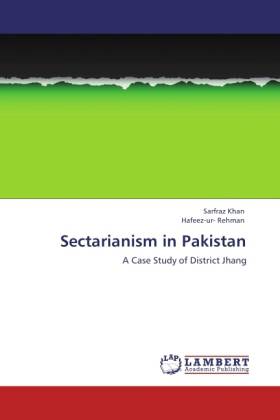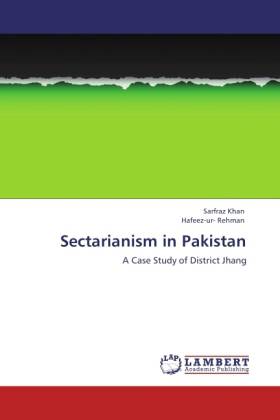
- Afhalen na 1 uur in een winkel met voorraad
- Gratis thuislevering in België vanaf € 30
- Ruim aanbod met 7 miljoen producten
- Afhalen na 1 uur in een winkel met voorraad
- Gratis thuislevering in België vanaf € 30
- Ruim aanbod met 7 miljoen producten
Zoeken
Sectarianism in Pakistan
A Case Study of District Jhang
Sarfraz Khan, Hafeez-Ur- Rehman
Paperback | Engels
€ 58,45
+ 116 punten
Omschrijving
Present study is based on anthropological fieldwork conducted in 2005-06. This research tries explores the major reasons of sectarian divide in early Muslim society and its expansion to the later period. It also investigates the major causes and consequences of sectarian conflict in district Jhang. The District Jhang among others faced worst nature of sectarian conflict in the history of Pakistan. The sectarianism here in Jhang is a conflict between Shiites and Deobandis. Throughout the last three decades sectarian clashes increased dramatically in Jhang. According to the office records of Jhang District Police Officer (DPO), 123 sectarian clashes were registered in various Police Stations from 1989 to 2002. These clashes produced high uncertainty among inhabitants with large-scale emigration; affected businesses; and unprecedented deaths on both sides. There are different precursors of this sectarian conflict. Among others theological difference; religious leaders' strife and political patronage; and ethnic identities of the inhabitants are the major determinants of this conflict.
Specificaties
Betrokkenen
- Auteur(s):
- Uitgeverij:
Inhoud
- Aantal bladzijden:
- 144
- Taal:
- Engels
Eigenschappen
- Productcode (EAN):
- 9783847334903
- Verschijningsdatum:
- 3/01/2012
- Uitvoering:
- Paperback
- Formaat:
- Trade paperback (VS)
- Afmetingen:
- 152 mm x 229 mm
- Gewicht:
- 222 g

Alleen bij Standaard Boekhandel
+ 116 punten op je klantenkaart van Standaard Boekhandel
Beoordelingen
We publiceren alleen reviews die voldoen aan de voorwaarden voor reviews. Bekijk onze voorwaarden voor reviews.











